Teen Confronts "Charitable" Parents, Accusing Them Of Adopting Him For Social Prestige
Parents who have adopted a child may display a picture of their child's first introduction to you if you ask them why they adopted. They might narrate how they taught their kid to swim one summer or recall the sound of them giggling and having fun in the backyard.
Although each adoptive parent has their own unique motivations, the main benefit of adoption is that it creates families. Adoption has numerous advantages, but expanding your family is a major decision.
So, before you start the adoption process, you should be sure that adoption is a good fit for your family. Meet u/PossessionFun1083, who has lived with his adoptive parents ever since he was adopted at three years of age.
OP's parents love telling anyone who listens the story of his adoption, and according to them, "they were my miracle." The OP heard the story so many times while growing up, and for the longest time, he struggled to figure out why he hated it so much.
The OP never told this to his parents because they had never shown care for him before, often ignoring any signs that he needed help. The last straw came when the OP transferred schools and quickly stopped home with a friend to grab some cash, only for his parents to tell his friend his adoption story.
The OP got home and got into an argument with his parents, which ended with him yelling.
The OP asks

OP's parents love telling anyone who listens the story of his adoption, and according to them, they were his miracle
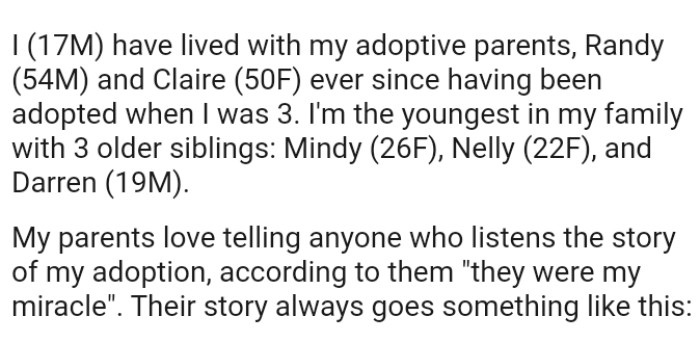
The orphanage told OP's adoptive parents that nobody was going to adopt the boy because of his birth defects
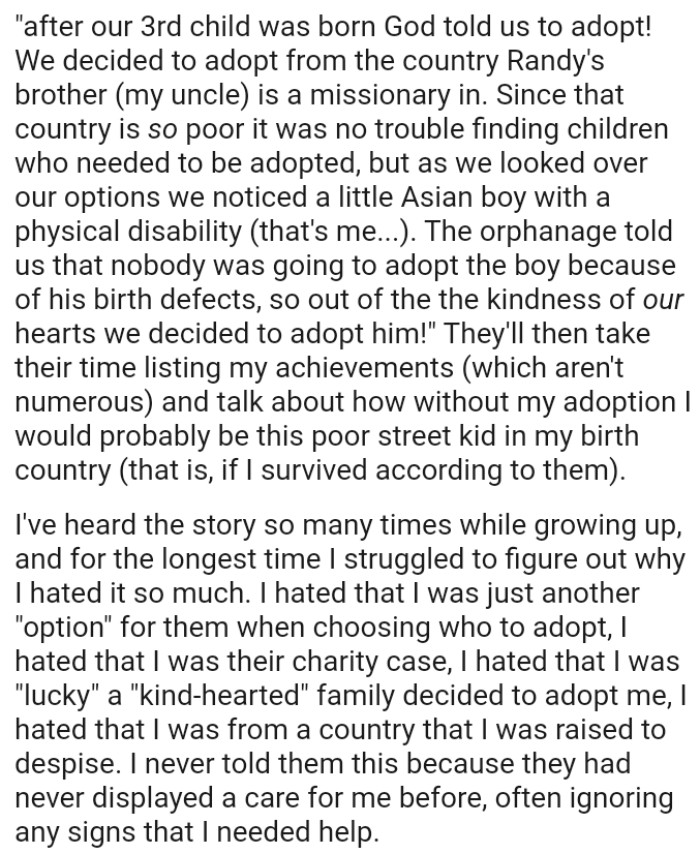
Navigating Identity in Adoption
Adopted individuals often grapple with complex feelings surrounding their identity and belonging. A developmental psychologist notes that the search for identity can be particularly pronounced in adopted children, especially during adolescence. Research indicates that feelings of abandonment and the quest for belonging can lead to internal conflict and distress. Understanding these dynamics is essential for fostering healthy self-esteem and emotional resilience in adopted individuals.
The OP was coming back upstairs from his room and heard his adoptive mom telling his friend the story
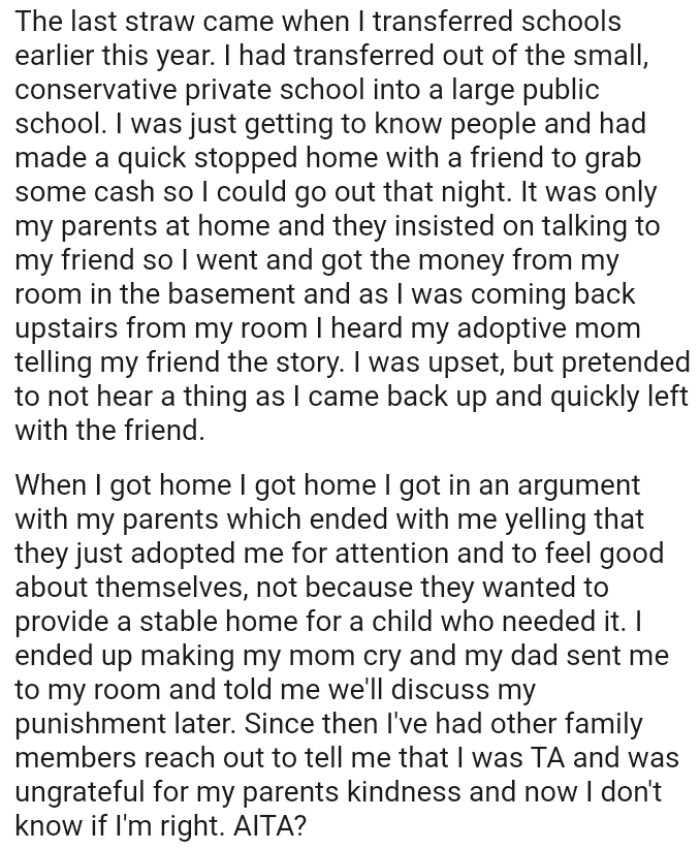
OP has offered the following explanation for why they think they might be the a-hole:
I told my parents that they adopted me for clout, effectively nullifying any care they gave me during my thirteen and a half years as their adopted child. I'm potentially the asshole because they did adopt me and put me in a better living situation.
They're supposed to treat the OP like their own kid, not like their accomplishment

There's something fishy and not honest about them bragging about it
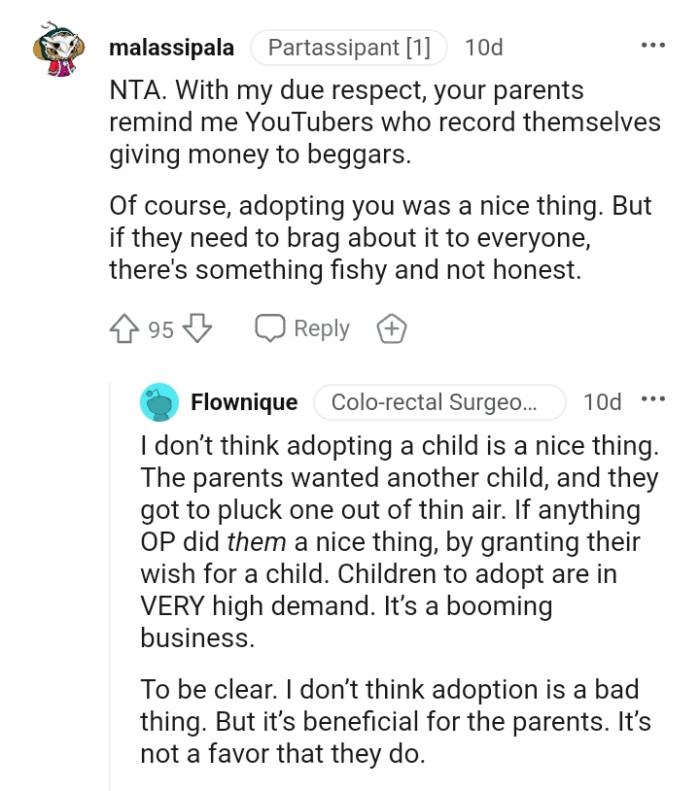
The accusation of being adopted for social prestige can reflect deeper societal pressures and expectations regarding family structures. Studies show that adopted individuals may feel they must prove their worthiness to their adoptive families, leading to feelings of inadequacy. A licensed therapist emphasizes the importance of validating these feelings while encouraging open dialogue about identity and familial expectations.
Adoption trauma is real, and the OP asserted himself
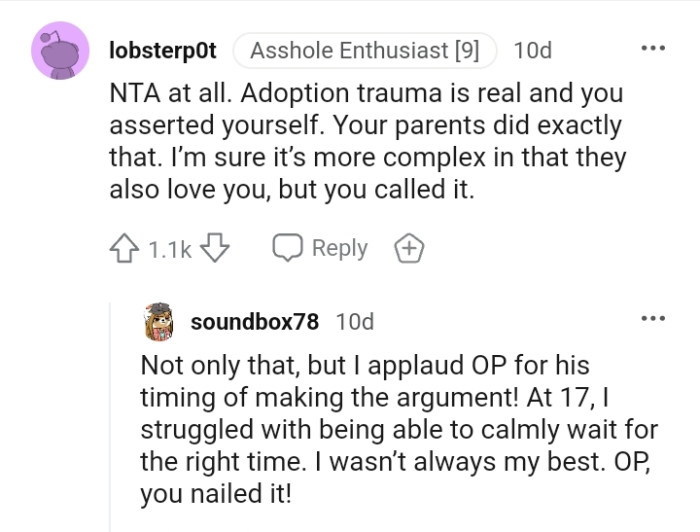
There are actually whole online communities full of people experiencing this exact thing
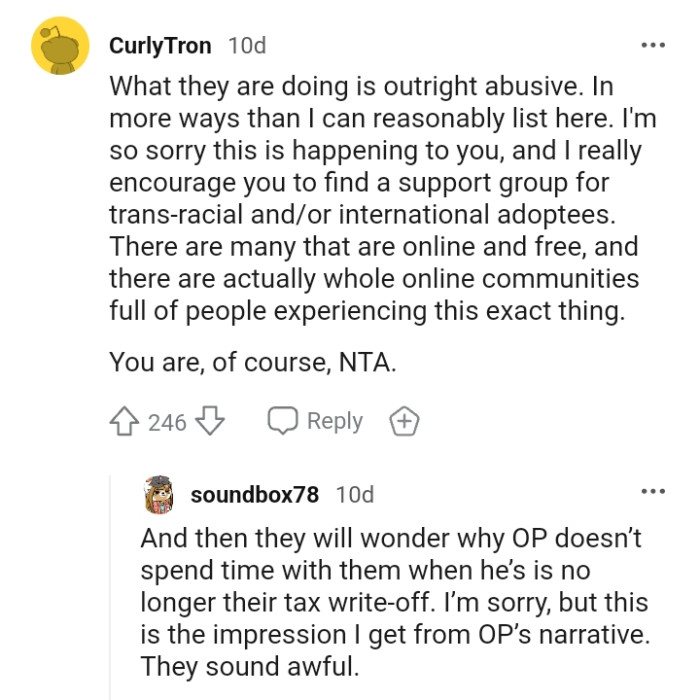
This redditor is so sorry the OP's family has treated him like this
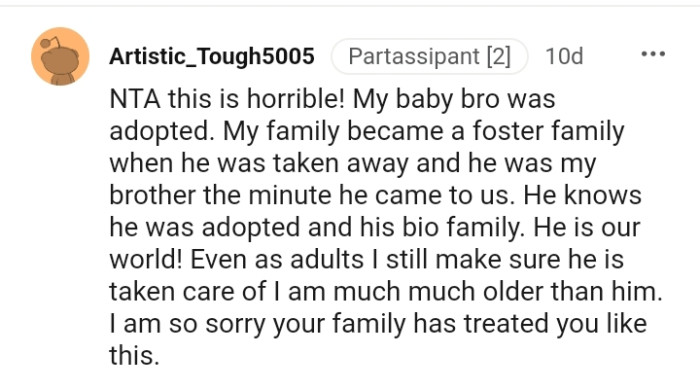
Fostering Healthy Self-Identity
To support adopted individuals in navigating their identity, it's essential to encourage open conversations about their feelings and experiences. Engaging in family therapy can provide a safe space for discussing complex emotions and fostering understanding. Research supports that families who engage in these conversations tend to report greater satisfaction and emotional bonding. Additionally, promoting self-exploration through journaling or creative outlets can enhance self-awareness and acceptance.
They chose to adopt the OP; he didn't go to their house by himself
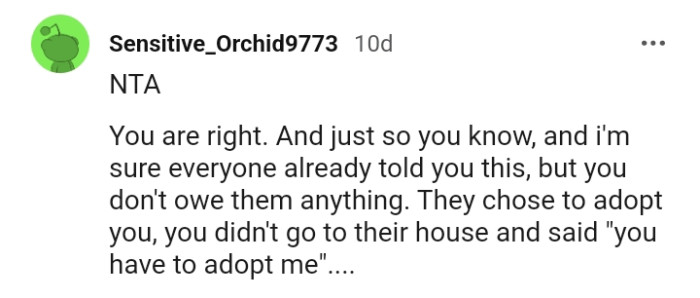
This redditor is sorry that the OP's parents suck

It's all about them and how wonderful they think they are
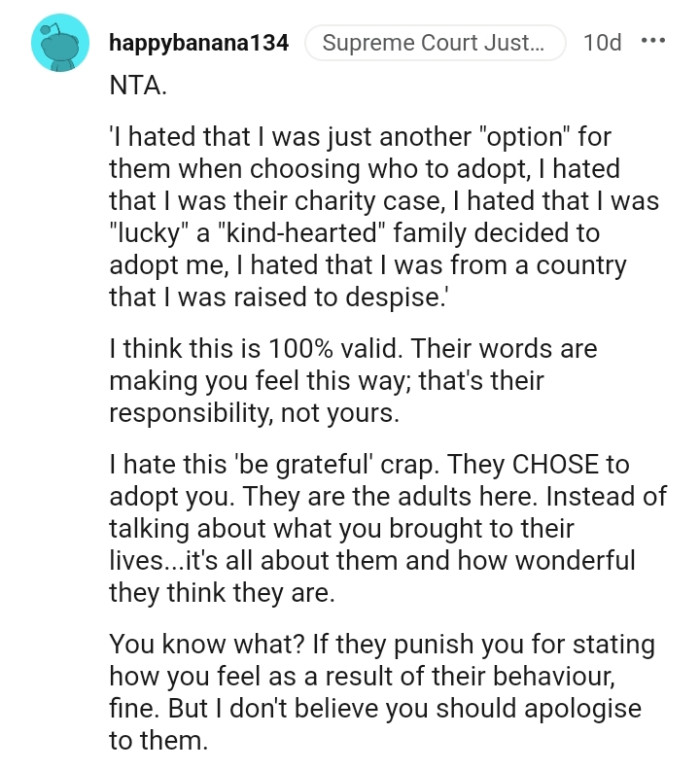
Encouraging connections with others who share similar experiences can also foster a sense of belonging. Support groups for adopted individuals can provide a platform for sharing experiences and building community. Studies indicate that peer support can significantly enhance emotional well-being and resilience. By fostering these connections, families can help adopted individuals feel valued and understood.
What's to stop them from abandoning you if you called them out?
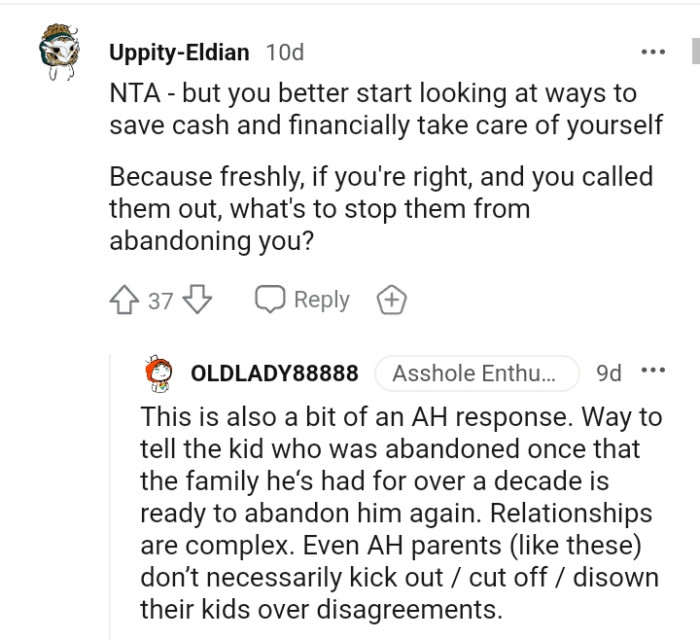
Making the decision to expand one's family through adoption is a very personal one. Every potential adoptive family enters the adoption procedure with a special set of circumstances that have influenced their desire to adopt.
So why would OP's parents treat him like their accomplishment instead of their own kid? Well, the OP was declared not the AH, and that's where we draw the curtains!
Psychological Analysis
This situation illustrates the complexities of identity formation in adopted individuals. The teen's feelings of inadequacy stem from societal expectations and the search for belonging. Addressing these feelings through family discussions can foster understanding and enhance emotional resilience.
Analysis generated by AI
Analysis & Alternative Approaches
Navigating identity in adoption is a complex journey that requires understanding and support. According to Dr. William Doherty, family therapist, "Open dialogue about identity and belonging is essential for emotional well-being." By fostering these conversations, families can help adopted individuals build a strong sense of self and belonging. Additionally, Dr. Terri Orbuch, relationship researcher, emphasizes that "Creating a supportive environment where adopted children can express their feelings is crucial for their development." These insights highlight the importance of communication in the adoption process.



